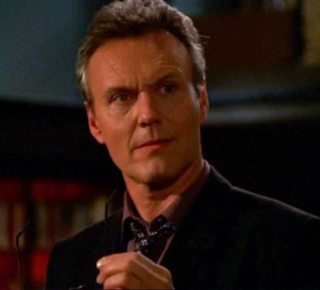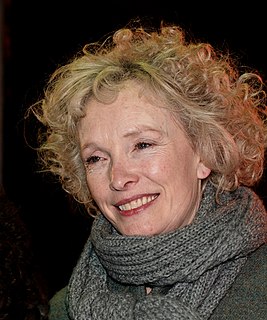A Quote by Joss Whedon
Forgiveness is like a great act of compassion. That it was done not because someone deserved it, but because they needed it.
Quote Topics
Related Quotes
It's forgiveness that makes us what we are. Without forgiveness, our species would've annihilated itself in endless retributions. Without forgiveness, there would be no history. Without that hope, there would be no art, for every work of art is in some way an act of forgiveness. Without that dream, there would be no love, for every act of love is in some way a promise to forgive. We live on because we can love, and we love because we can forgive.
For an act to be moral the intention must be based on compassion, not duty. We do something because we want to do it, because we feel we have to do it, not because we ought to do it. And even if our efforts fail - or we never even get to implement them - we are still moral because our motivation was based on compassion.
I think [forgiveness] may be the greatest virtue on earth, and certainly the most needed. There is so much of meanness and abuse, of intolerance and hatred. There is so great a need for repentance and forgiveness. It is the great principle emphasized in all of scripture, both ancient and modern. Somehow forgiveness, with love and tolerance, accomplishes miracles that can happen in no other way.
For there are two kinds of forgiveness in the world: the one you practice because everything really is all right, and what went before is mended. The other kind of forgiveness you practice because someone needs desperately to be forgiven, or because you need just as badly to forgive them, for a heart can grab hold of old wounds and go sour as milk over them.
If a person has done wrong, is conscious of what he has done and does not say sorry, I ask God to take him into account. I forgive him, but he does not receive that forgiveness, he is closed to forgiveness. We must forgive, because we were all forgiven. It is another thing to receive that forgiveness.
Forgiving someone does not mean you condone their behavior. The act of forgiveness takes place in your own mind. It really has nothing to do with the other person. The reality of true forgiveness lies in setting ourselves free from holding on to the pain. It is simply an act of releasing yourself from the negative energy.
I have heard and seen many examples of the cruelty that we are able to visit on one another during my time. . . I have also seen incredible forgiveness and compassion. Yes, each of us has the capacity for great evil. But for every act of evil there are a dozen acts of goodness in our world that go unnoticed. It is only because we believe that people should be good that we despair when they are not. Indeed, if people condoned the evil, we would be justified in losing hope. But most of the world does not. We know that we are meant for better.
Sometimes I make very selfish choices; like I did 'Once Upon A Time' for my inner 8-year-old and my hypothetical future child. I've done some movies because I would regret them if I didn't, but other projects I've done because they've scared me or if I felt I needed to do a big romantic comedy to help me professionally.






































